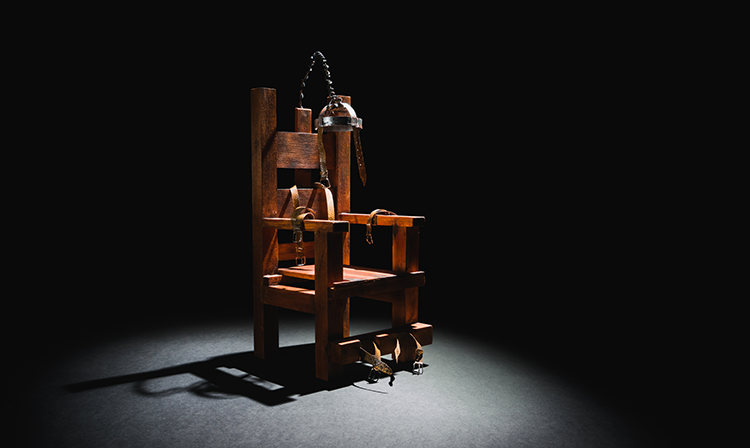Washington Supreme Court strikes down state death penalty as racially biased

Image from Shutterstock.
The Washington Supreme Court has ruled the state’s death penalty violates the state constitution because it is "imposed in an arbitrary and racially biased manner."
The court ruled unanimously Thursday in the case of Allen Eugene Gregory, who was convicted of murder for the 1996 rape and stabbing death of a woman in her home. Police had charged Gregory after they obtained his DNA from a blood sample while investigating the rape of another woman.
The court said the death penalty is unconstitutionally cruel punishment under the state constitution because its unequal application fails to serve any legitimate penological goal. The court converted all death sentences to life imprisonment.
“The use of the death penalty is unequally applied—sometimes by where the crime took place, or the county of residence, or the available budgetary resources at any given point in time, or the race of the defendant,” the court said.
The court cited a study commissioned for Gregory that found black defendants were between 3.5 and 4.6 times more likely to be sentenced to death in the state than similarly situated white defendants. The percentage varied based on the statistical model used.
The study also found significant county-by-county variation in decisions to seek or impose the death penalty, and said a portion of that variation is a function of the size of the black population.
The Washington Supreme Court is the third state supreme court to strike down the death penalty partly because of concerns about racial disparities, according to a press release by the American Civil Liberties Union. The other courts were Massachusetts in 1980 and Connecticut in 2015.
The ACLU had filed an amicus brief seeking to overturn the death penalty in Washington. Seventy-five former or retired judges joined in the brief.
Following the Washington decision, only 30 states allow the death penalty, the Hill reports in its story on the case. Though Washington had permitted capital punishment, Gov. Jay Inslee had imposed a moratorium on the death penalty in 2014, according to Associated Press coverage and the Death Penalty Information Center.
Gregory’s initial death sentence was overturned partly because of misconduct during closing arguments. A new sentencing jury imposed the death penalty, and the case went once again to the Washington Supreme Court, which is required by law to review all death sentences.
The law also requires the court to consider as part of its review whether the death sentence is excessive or disproportionate to the penalty imposed in similar cases. Gregory argued his sentence violated the proportionality requirement and commissioned the study to make his case.
The Washington Supreme Court said it had discretion to resolve Gregory’s case solely through the proportionality review required by law, but that review would not be “a substitute for the protections afforded to all persons under our constitution.”
The court said its was holding that the death penalty is unconstitutional as administered, and was leaving open the possibility that the legislature could enact a capital punishment statute that satisfies constitutional standards.
The case is State v. Gregory.



